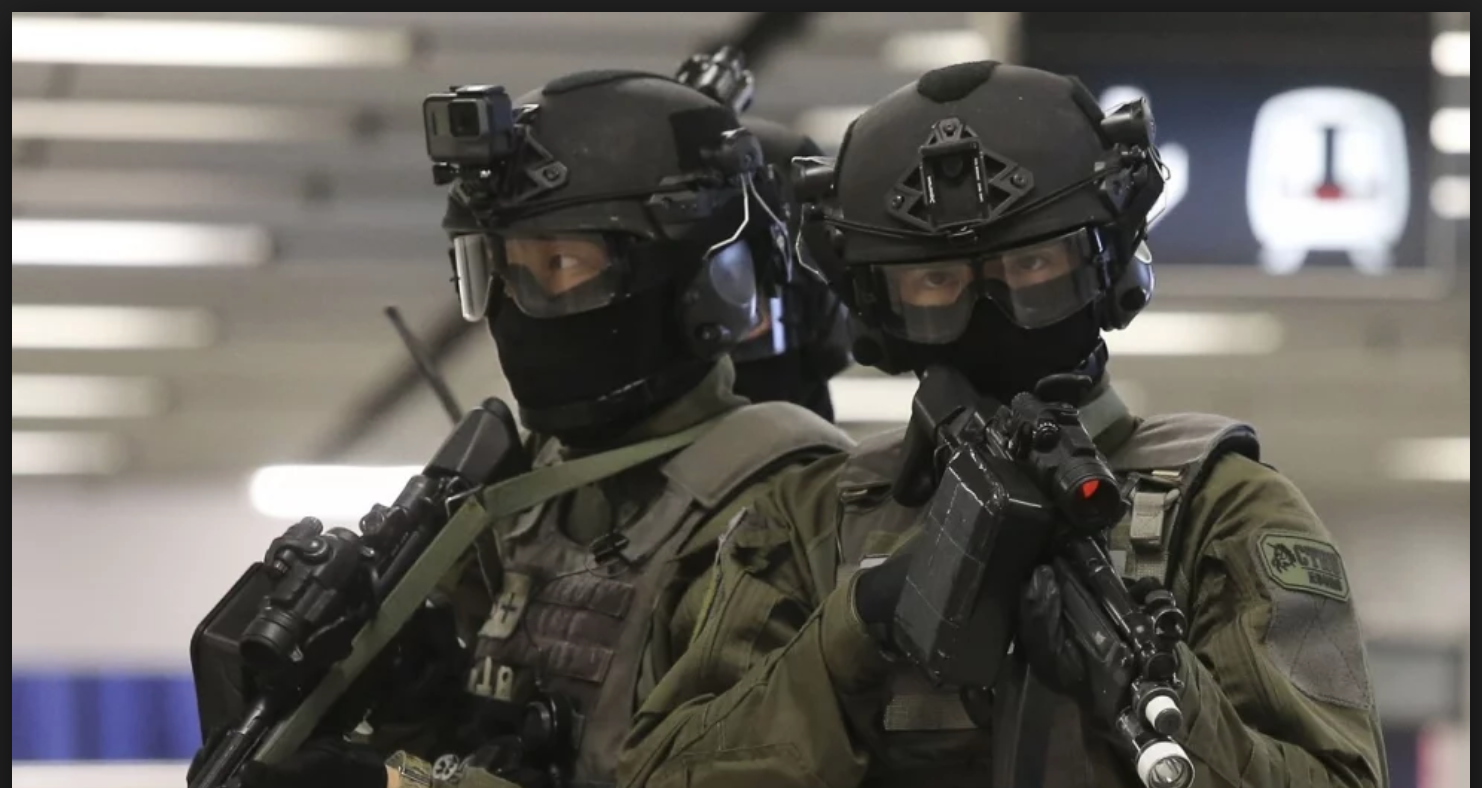Hong Kong’s anti-terrorism task force goes to Xinjiang to study local methods, as China rejects international calls to investigate mass internment centres

South China Morning Post, 6 December 2018
 By Christy Leung Hong Kong’s anti-terrorism task force headed to China’s northwestern region of Xinjiang on Thursday to study how its counterpart there has tackled extremists, the Post has learned. The visit takes place against the backdrop of international calls to investigate mass internment centres for Muslim minorities in the region.
By Christy Leung Hong Kong’s anti-terrorism task force headed to China’s northwestern region of Xinjiang on Thursday to study how its counterpart there has tackled extremists, the Post has learned. The visit takes place against the backdrop of international calls to investigate mass internment centres for Muslim minorities in the region.
But a government source stressed the move did not mean Hong Kong supported such centres, or that it would be borrowing ideas from them, as the local contexts were different.
“Xinjiang is, among all places, where China has vowed the most to fight against terrorism. It is, therefore, a good place for us to learn how officers there have gathered intelligence and protected facilities,” the insider said.
“The controversial re-education centres are among the measures used but that doesn’t mean Hong Kong should borrow the idea. As a matter of fact, we have no such needs due to the differences in terrorism situations we each face.”
The Post understood that deputy security minister Sonny Au Chi-kwong was leading seven members from the Interdepartmental Counterterrorism Unit, established in April, to visit the province for five days to study its counterterrorism measures and facilities.
“The response time to terrorist attacks in Xinjiang is just one minute, to avoid mass casualties. It is worth knowing how they manage to execute such a prompt response,” the source continued.
On a similar mission, security minister John Lee Ka-chiu will next month lead the unit chiefs to Beijing and southwestern Yunnan province.
Islamist terrorists have been said to be using coastal routes to slip into Xinjiang via Myanmar and Vietnam and then Yunnan in recent years.
The Security Bureau confirmed the visit and said members from six law enforcement agencies in the unit would exchange views on counterterrorism-related areas with their counterparts in Xinjiang. It did not confirm the reported visit to Beijing next month.
The bureau and local law enforcement have visited the northwestern province every few years. This current trip comes just after China rejected a German human rights delegation’s request to visit Xinjiang to investigate detention centres for Uygurs.
China implemented restrictive policies in Xinjiang as part of a “strike hard” campaign to combat terrorism after riots by the Uygur ethnic minority in the autonomous region’s capital Urumqi in 2009.
Last week, Uygur woman Mihrigul Tursun told the United States Congress she was tortured multiple times while detained in one of the centres, where a number of detainees died.
Germany, along with the United States and France, called on China to close the camps during a UN review of China’s human rights record in Geneva last month, as rights campaigners said up to a million members of the Uygur minority and other Muslims were detained.
Chinese officials have been pushing back against growing criticism of the detention of Muslim minorities in internment camps, claiming authorities were merely providing professional training and education.
Last month, Chinese Foreign Minister Wang Yi said the world should ignore “gossip” about the Xinjiang region and trust the authorities there.
“[People] should not listen to gossip or rumours, because the Xinjiang regional government, of course, understands the situation in Xinjiang best, and not other people or organisations,” Wang said after meeting German foreign minister Heiko Maas in Beijing.
“The efforts are completely in line with the direction the international community has taken to combat terrorism, and are an important part of the global fight against terrorism.”
Hong Kong’s anti-terrorism task force was established in April to boost the city’s preparedness and capability in light of global terror threats and attacks. The task force was announced by Chief Executive Carrie Lam Cheng Yuet-ngor in her policy address in October 2017.
Headed by the Security Bureau, the unit comprises 43 officers from the six disciplined services, namely the police, customs, immigration, correctional services, the fire services authority and the Government Flying Service.

